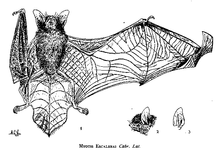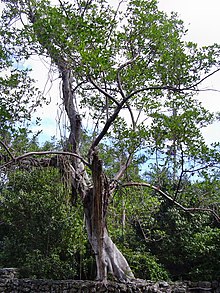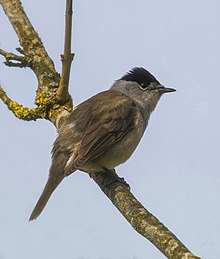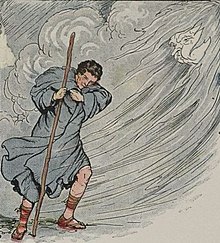Portal:Science
Science portal

Science is a systematic discipline that builds and organises knowledge in the form of testable hypotheses and predictions about the universe. Modern science is typically divided into two or three major branches: the natural sciences (e.g., physics, chemistry, and biology), which study the physical world; and the social sciences (e.g., economics, psychology, and sociology), which study individuals and societies. The formal sciences (e.g., logic, mathematics, and theoretical computer science), which study formal systems governed by axioms and rules, are sometimes described as being sciences as well; however, they are often regarded as a separate field because they rely on deductive reasoning instead of the scientific method or empirical evidence as their main methodology. Applied sciences are disciplines that use scientific knowledge for practical purposes, such as engineering and medicine. (Full article...)
Featured article -
Featured pictures
Vital articles
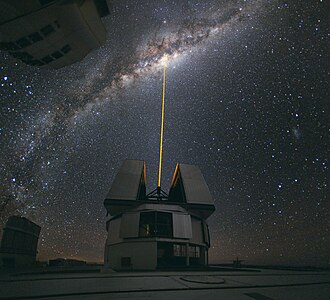
Astronomy is a natural science that studies celestial objects and the phenomena that occur in the cosmos. It uses mathematics, physics, and chemistry in order to explain their origin and their overall evolution. Objects of interest include planets, moons, stars, nebulae, galaxies, meteoroids, asteroids, and comets. Relevant phenomena include supernova explosions, gamma ray bursts, quasars, blazars, pulsars, and cosmic microwave background radiation. More generally, astronomy studies everything that originates beyond Earth's atmosphere. Cosmology is a branch of astronomy that studies the universe as a whole. (Full article...)
Did you know...
- ... that several science fiction critics praised "Rock Diver", the first short story by American writer Harry Harrison, for its compelling take on technology for passing through matter?
- ... that Charlie Jane Anders wrote preferred pronouns into her science fiction novel Victories Greater Than Death because she thought that alien gender would be unclear to humans?
- ... that the calling patterns of the Japanese tree frog have been used in wireless network design, furthering an area of science known as swarm intelligence?
- ... that physicist Sabine Hossenfelder's book Existential Physics discusses whether free will, the multiverse, the existence of God, and the meaning of life are topics that science can answer?
- ... that Godwin Obasi has been described as "Africa's gift to the world of climate science"?
- ... that Mary Clutter used her directorial position at the National Science Foundation to require scientific conferences to include women speakers when presenting research done by them?
Get involved
| This portal needs to be updated. Please help update this portal to reflect recent events or newly available information. Relevant discussion may be found on the talk page. |

|

|
Science News
- 28 January 2025 – Doomsday Clock
- The Bulletin of the Atomic Scientists announces that the Doomsday Clock has been moved up to 89 seconds before midnight. (Reuters)
- 16 January 2025 – 2025 in spaceflight
- Blue Origin launches its New Glenn rocket for the first time from Cape Canaveral Space Force Station in Florida, United States. The rocket's second stage, carrying a prototype Blue Ring spacecraft, successfully reaches a geocentric orbit, but its reusable first stage is lost during landing. (CNN)
- The twin satellites SDX01 and SDX02 of the SpaDeX mission, launched in December by the Indian Space Research Organisation, successfully conduct India's first spacecraft docking, with India becoming the fourth country to successfully dock a spacecraft after the United States, Russia, and China. (BBC News)
- SpaceX launches its seventh test flight of the Starship launch vehicle, with an improved second stage, at Starbase in Texas, United States. The first stage is successfully caught by the launch tower but the second stage breaks up shortly before engine shutdown. (CNBC)
- 2 January 2025 – 2025 in paleontology, Dinosaur finds in the United Kingdom
- The largest site of dinosaur footprints of the Cetiosaurus and Megalosaurus dating back to the Middle Jurassic Bathonian stage 166 million years ago is discovered at a quarry in Oxfordshire, England, United Kingdom. (BBC News)
- 25 December 2024 – 2024 in archosaur paleontology
- Scientists confirm the discovery of the Alpkarakush kyrgyzicus dinosaur species in Kyrgyzstan, the first theropod from the Jurassic period to be discovered in Central Asia. (Tempo)
Related portals
Top 10 WikiProject Science Popular articles of the month -
Categories -


